should you mix manure in your cactus/succulent soil?
chicagardens
12 years ago
Featured Answer
Sort by:Oldest
Comments (38)
whip1 Zone 5 NE Ohio
12 years agocactusmcharris, interior BC Z4/5
12 years agoRelated Professionals
Marco Island Landscape Architects & Landscape Designers · Anderson Landscape Contractors · Manchester Landscape Contractors · Coram Landscape Contractors · Newberg Landscape Contractors · Shaker Heights Landscape Contractors · Eastlake Landscape Contractors · Maple Heights Landscape Contractors · DeRidder General Contractors · Highland City General Contractors · Kilgore General Contractors · Millbrae General Contractors · Killeen Carpenters · Overland Park Decks, Patios & Outdoor Enclosures · West Hills Decks, Patios & Outdoor Enclosuresssk22 Ohio 5b
12 years agogreenman28 NorCal 7b/8a
12 years agocactusmcharris, interior BC Z4/5
12 years agoJulie_Alley
12 years agocactusmcharris, interior BC Z4/5
12 years agowhip1 Zone 5 NE Ohio
12 years agocactusmcharris, interior BC Z4/5
12 years agomadabouteu
12 years agotapla (mid-Michigan, USDA z5b-6a)
12 years agochicagardens
12 years agowhip1 Zone 5 NE Ohio
12 years agocactusmcharris, interior BC Z4/5
12 years agotapla (mid-Michigan, USDA z5b-6a)
12 years agoxerophyte NYC
12 years agotapla (mid-Michigan, USDA z5b-6a)
12 years agocactusmcharris, interior BC Z4/5
12 years agogreenman28 NorCal 7b/8a
12 years agoparacelsus
12 years agochicagardens
12 years agonorma_2006
12 years agojolj
11 years agotapla (mid-Michigan, USDA z5b-6a)
11 years agoTheMasterGardener1
11 years agomrlike2u
11 years agocactusmcharris, interior BC Z4/5
11 years agoStush2049 Pitts. PA, zone 6
11 years agotapla (mid-Michigan, USDA z5b-6a)
11 years agoTheMasterGardener1
11 years agoTheMasterGardener1
11 years agomrlike2u
11 years agoTheMasterGardener1
11 years agoTheMasterGardener1
11 years agocactusmcharris, interior BC Z4/5
11 years agoTheMasterGardener1
11 years agoTheMasterGardener1
11 years ago
Related Stories

GARDENING GUIDES10 Creative Ideas for Cactus and Succulent Gardens
Arrange cactuses and succulents amid salvaged treasures, against a vibrant painted wall or in terraced beds
Full Story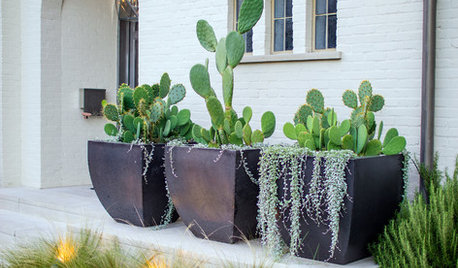
CONTAINER GARDENSCactus and Succulent Containers Are Ideal for Hot, Sunny Spots
Bring on the sun with these heat-loving succulent container gardens
Full Story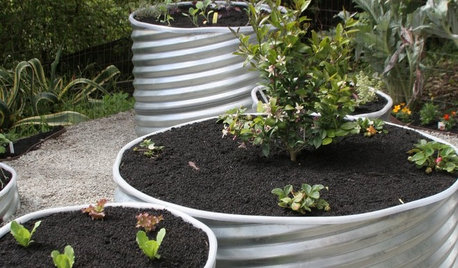
CONTAINER GARDENSContainer Gardening Basics: The Dirt on Soil
Learn the types of potting soil available and the best mixes to help your containers thrive
Full Story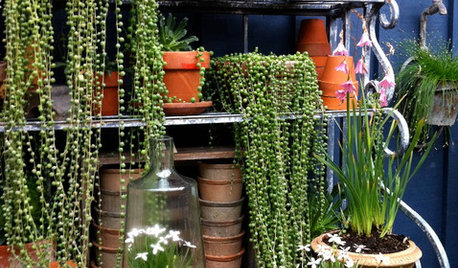
HOUSEPLANTSCascading Succulents Bring Fun Shapes to Your Indoor Garden
For eye-catching spillers with delicate beauty and minimal needs, it's hard to beat these 2 trailing houseplants
Full Story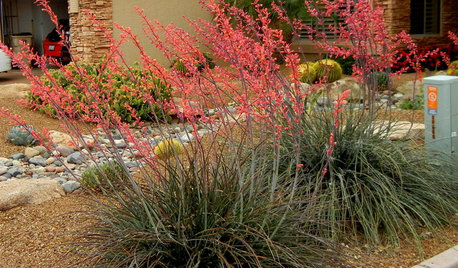
GARDENING GUIDES10 Cold-Hardy Succulents for Cool-Season Interest
These attractive plants shrug off colder temperatures, and many can be brought inside in containers in extra-chilly climates
Full Story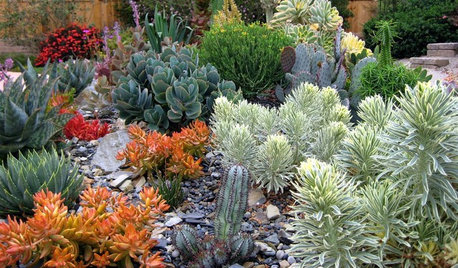
GARDENING GUIDESA Beginner’s Guide to Growing Succulents
Their easy-care reputation is well-deserved, but a little TLC will turn succulents into star plants
Full Story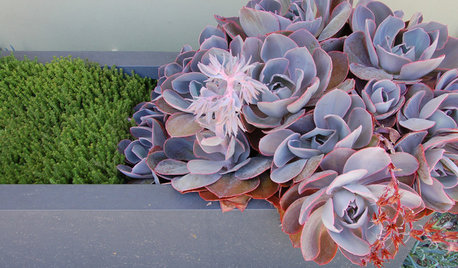
SUCCULENTSGrow a Garden of Succulents for Easy Beauty
Low-water plants in a wide range of colors, shapes and sizes? Sign us up — and check out our faves here
Full Story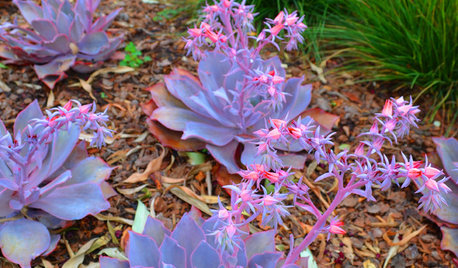
GARDENING GUIDESGreat Design Plants: Stars of the Succulent Garden
Amazing colors, exuberant blooms, low maintenance ... is it any wonder Echeveria is so popular?
Full Story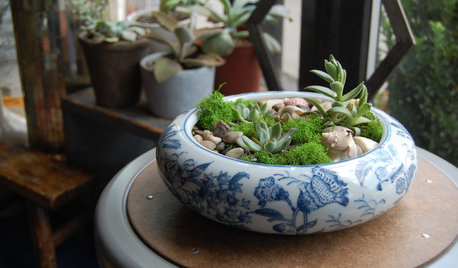
DIY PROJECTSQuick DIY Project: 3 Ways to Show Off Your Succulents
Create a simple yet lush vignette with a few plants and some everyday items
Full Story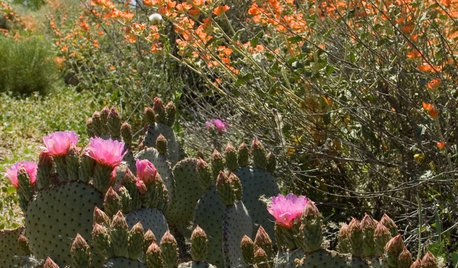
GARDENING GUIDESGreat Design Plant: Beavertail Prickly Pear Wows With Color
The dazzling magenta flowers of this cactus will snag your heart — just beware the bristles that can stick in your skin
Full StorySponsored
More Discussions






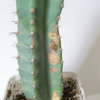
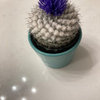
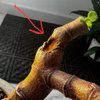
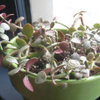
tapla (mid-Michigan, USDA z5b-6a)